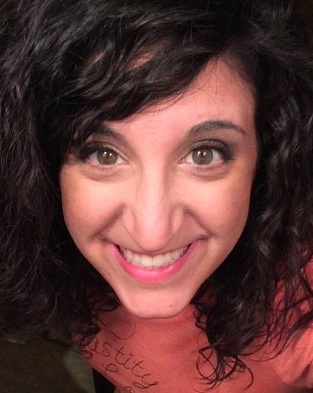
Why I STILL don’t date men who are “willing” to save sex
In his quiet apartment, I stirred a pot of mac ‘n’ cheese while I watched him watch TV. He sighed. So did I, and for the same reason that he did: As of a few minutes earlier, I wasn’t his girlfriend anymore.
His was a sigh of resignation. Mine was a sigh of relief.
When we first met, I was 23. He was 27. I wanted a chaste relationship. He didn’t. We dated anyway. He was “willing” to save sex for marriage: he saw no merit in it, outside of getting to date me, but agreed, under protest, to abstain.
The first time he asked me to do what I couldn’t, he said please. I said no. I always said no. He was frustrated by my objection to helping him satisfy the urges he didn’t want to govern. Eventually, he was mean.
“Your boundaries are killing me,” he said.
“You’re not a 13-year-old.”
“No man will wait that long.”
His “willingness” to save sex—which, as implied by the quotes around the word, wasn’t actually willingness—had waned. He wanted me to break my promise to practice chastity. Instead, I broke up with him.
I picked the pot of mac ‘n’ cheese up off the burner, and was sure I’d never date a guy again who was only “willing” to save sex. Last year, I wrote about it.*
The post, called “Why I don’t date men who are ‘willing’ to save sex for marriage,” is the most-read thing I have ever written. It struck chords. It also struck nerves:
“By automatically avoiding these men, you rule out the possibility that Jesus might be presenting you with an opportunity to aide in someone’s conversion…”
“I would not automatically disqualify someone if they were (“willing” to wait). Not every guy received good formation, often through no fault of his own”
“(His) willingness is a step in the right direction and is worthy of great respect!”
My decision not to date men anymore who are “willing” to save sex didn’t always sit well with others. After all, an unchaste man’s decision to abstain from sex is indicative of his potential to change. Indeed, my decision to date a man who doesn’t believe what I do—about Jesus, about sex, or about anything at all—could be a catalyst for his conversion.
And I want a catalyst to exist. I want him to know we were designed by Love, for love; we are created able to become like God’s son, Jesus Christ, who—out of love—died and rose that we might live.
If an unchaste man knew what I know, he would want to practice chastity.
He could learn if I date him. But I still won’t. Here’s why:
Because chaste people don’t owe unchaste people a chance.
Neither my attraction to an unchaste man nor an unchaste man’s potential to change obligates me to date him, because nothing obligates any person to date another. It is your right to have a stable set of standards, and it is your right to rule out the people who don’t meet them.
Because people who practice chastity do exist.
Is a chaste person hesitant to rule out an unchaste person because he or she can be the catalyst for his or her conversion, or because he or she is afraid that people who are already chaste don’t exist? But people who practice chastity today—regardless of their pasts—do exist. I don’t meet them while I’m dating a man who doesn’t.
Because a romantic relationship with a chaste person isn’t an unchaste person’s only path to chastity.
Any unchaste man I meet does need Jesus. He does need virtue. But I do not need to be his girlfriend to introduce them to him. A chaste person’s decision not to date an unchaste person doesn’t deprive an unchaste person of what he or she actually needs: an introduction to chastity, and an encounter with the Holy Spirit. If we treat unchaste people like they can’t become chaste unless or until a chaste person dates them, we underestimate them, and we underestimate God.
*Click here to read “Why I don’t date men who are ‘willing’ to save sex for marriage.”
_______________________________
 Arleen Spenceley is author of the book Chastity is For Lovers: Single, Happy, and (Still) a Virgin. She works as a staff writer for the Tampa Bay Times, and has a bachelor’s degree in journalism and a master’s degree in counseling, both from the University of South Florida. She blogs at arleenspenceley.com. You can connect with her on Twitter, Facebook, and Instagram.
Arleen Spenceley is author of the book Chastity is For Lovers: Single, Happy, and (Still) a Virgin. She works as a staff writer for the Tampa Bay Times, and has a bachelor’s degree in journalism and a master’s degree in counseling, both from the University of South Florida. She blogs at arleenspenceley.com. You can connect with her on Twitter, Facebook, and Instagram.